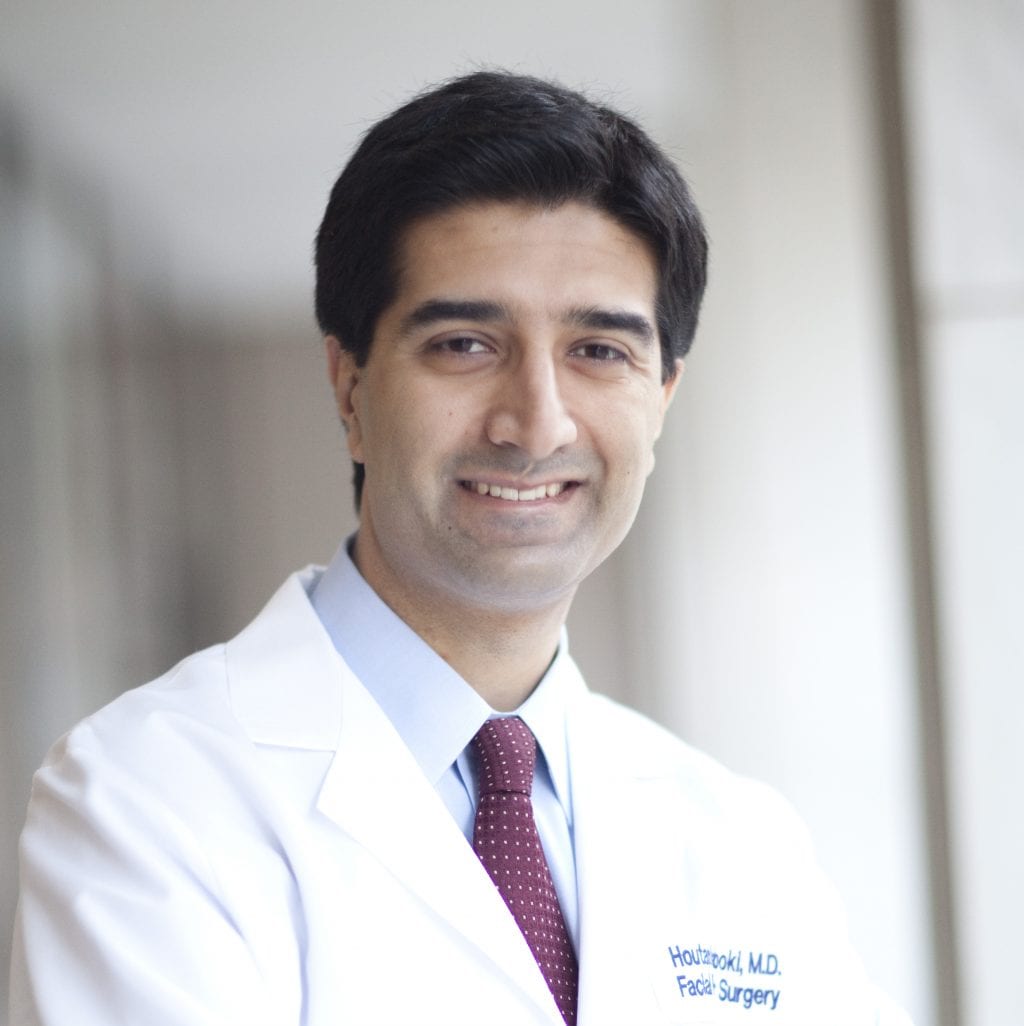While some nonsurgical treatments such as Botox® may require relatively less thought and time, patients considering cosmetic surgery should allow adequate time and preparation before proceeding with elective surgery. Everyone considering cosmetic surgery has sufficient time to do adequate research beforehand. Don’t rush into surgery.
These are just some of the questions to ask, but there will be many more that you will want to ask over the course of the consultation process.
What specifically are you looking to change or improve?
The first questions should be answered by the patient before the consultation. Do you prefer a dramatic change or subtle change? Would you satisfied with any improvement, or do you have ideal result in mind? Want to appear refreshed or significantly younger? Are you looking for a small nose or more proportionate nose? More defined chin? Less fat or skin? Lifted cheeks?
Be honest with yourself when identifying desired changes. This plastic surgery blog and website has tons of information that might help you answer these questions for yourself, or at least stimulate thought.
Understanding in a more detailed manner what changes you are looking for helps both you and your plastic surgeon. Don’t worry if you don’t know exactly which specific changes will help you look your best. The answer may reveal itself during the consultation and information gathering. However, start thinking about these factors before meeting the surgeon.
What are your certifications?
The best plastic surgeons should not be offended by questions regarding professional background and training. In the United States, your cosmetic surgeon should be board certified by the American Board of Medical Specialties (ABMS), which has 24 Member Boards in various specialties. Each medical board has various lengths for training and criteria for certification.
Dr. Chaboki spent six years after medical school in postgraduate surgical training and is board-certified in both otolaryngology (head & neck surgery) and facial plastic and reconstructive surgery. Facial plastic surgeons with this training perform the majority of elective facial plastic surgery procedures in the United States. Dual board certification in the face allows him to focus on cosmetic procedures such as eyelid surgery, rhinoplasty, and facelift surgery.
Learn more about Dr. Chaboki.
Do you have examples of this procedure?
Most plastic surgeons will have before and after photos available to share with prospective patients. Ask what procedures were performed and the timeframe photographs were taken after surgery. Does your anticipated change match with these surgical results?
Photographs alone are not an absolute guide for considering a plastic surgeon and should be taken with a grain of salt. Be skeptical as plastic surgery photographs may be misleading, due to variations in photo conditions such as lighting, patient position, camera angle, camera itself, makeup, facial expression, and timing after cosmetic surgery. Lastly, each patient is unique and results will vary.
How long have you been practicing, and how many times have you done this surgery before?
The longer a surgeon has been practicing, the more likely they may be skilled in a procedure to a certain degree. There may be, however, “Michealangelos of plastic surgery” who may have a special technical talent. Don’t be persuaded by plastic surgeons, however, who self-label themselves as the top surgeon.
Also, consider that certain procedures, ex. revision rhinoplasty, may be more complex that only a few surgeons choose to perform. Other procedures, ex. chin liposuction, is relatively simple and offered by many plastic surgeons. More complex procedures are just not done as frequently by many plastic surgeons due to multiple factors, while routine procedures are performed much more frequently (ex. primary breast augmentation with implant).
In addition, some plastic surgeons may focus their practice on one aspect of cosmetic surgery (ex. breast surgery), so they may choose not perform other elective procedures (ex. facelift surgery). Some surgeons only devote his/her practice to a specific procedure (ex. revision rhinoplasty or double eyelid surgery).
Am I a good candidate for this procedure?
Candidates for plastic surgery will be in good general health and a nonsmoker. Surgical candidates also have adequate time for recovery after surgery. Most importantly, candidates for plastic surgery have a positive outlook and realistic expectations.
Plastic surgeons will help guide patients regarding candidacy for specific procedures. For example, facelift patients generally have enough loose tissue or skin laxity in the neck or jowls to warrant surgical improvement. Appreciate an honest evaluation if your plastic surgeon refuses to perform surgery if you’re not a good candidate.
Read more about being a good candidate for facelift and neck lift surgery.
How is recovery after plastic surgery?
Most plastic surgery recovery occurs in the first couple weeks, but it may take a year (or longer) for “final” recovery. Plastic surgeons can break down recovery into
- What are limitations in activity? ex. heavy lifting
- When normal activities may resume? ex. exercise
- What side effect one may experience? ex. bruising and swelling
Read about tips to help hide recovery after plastic surgery.
What are the possible complications with plastic surgery?
A majority of patients undergo plastic surgery in a safe manner without complications. However, patients should have knowledge of potential complications. Everyone will have swelling. Plastic surgeons will discuss factors such as bleeding, infection, scar tissue, nerve damage, and revision surgery. What are your options if something does happen? When should you contact the doctor?
How much will the plastic surgery cost?
Plastic surgery prices are based on a variety of factors, including
- surgeon fees
- anesthesia fees
- facility fees
- material fees
Prices vary from surgeon to surgeon. Geography will also influence plastic surgery price. Read more about costs in our website under Fees and Financing.
Review your notes and thoughts after the cosmetic surgery consultation with your plastic surgeon. You will likely develop new questions after the initial visit. Many plastic surgery practices provide followup consultations prior to surgery.


Leave a Reply